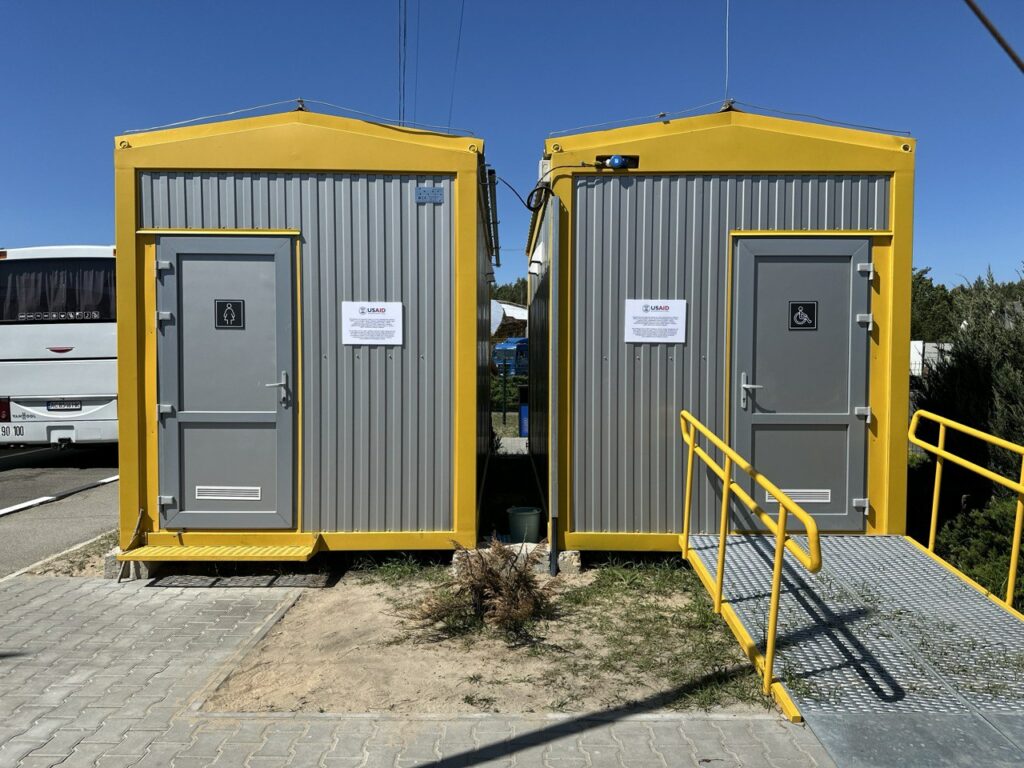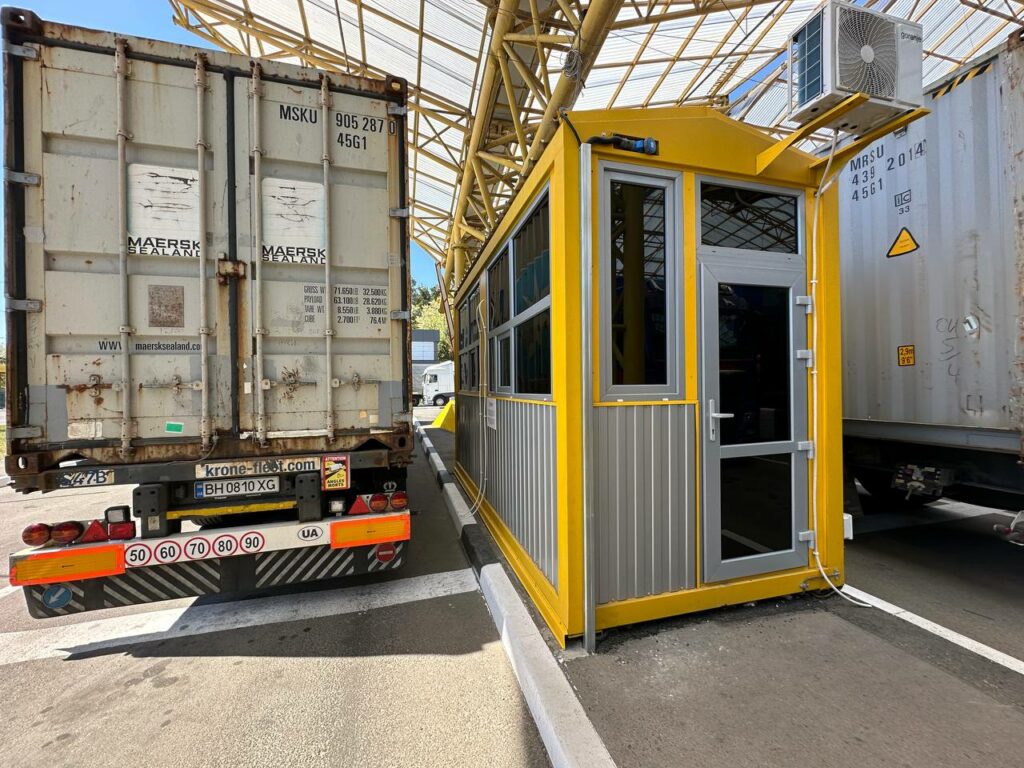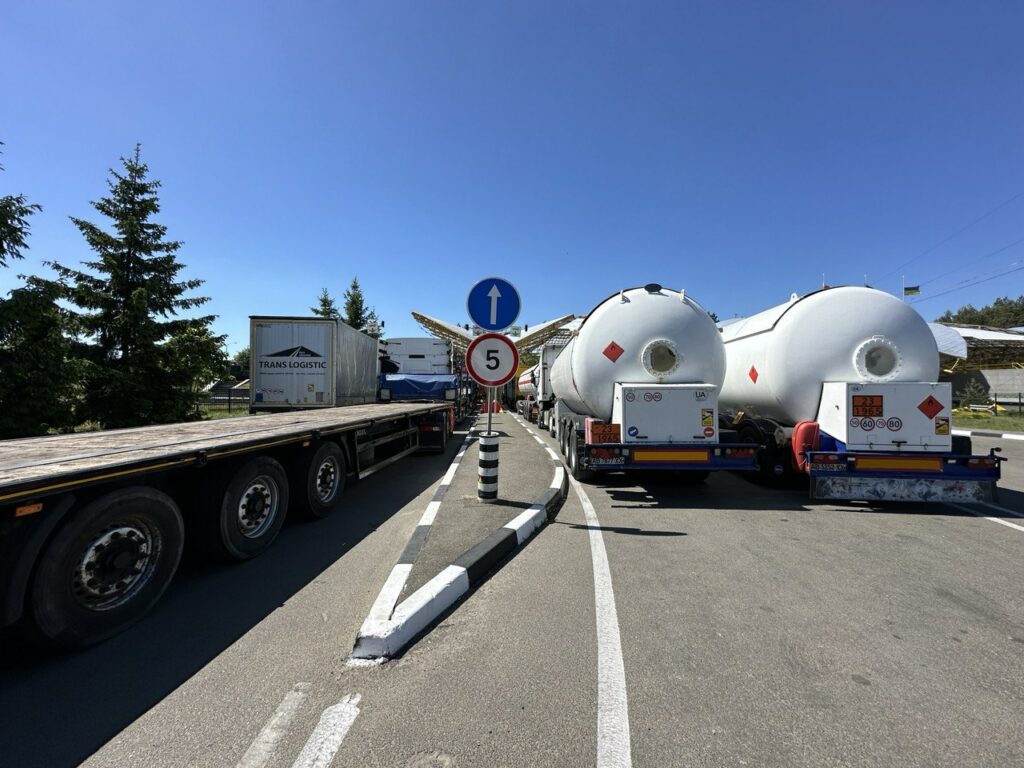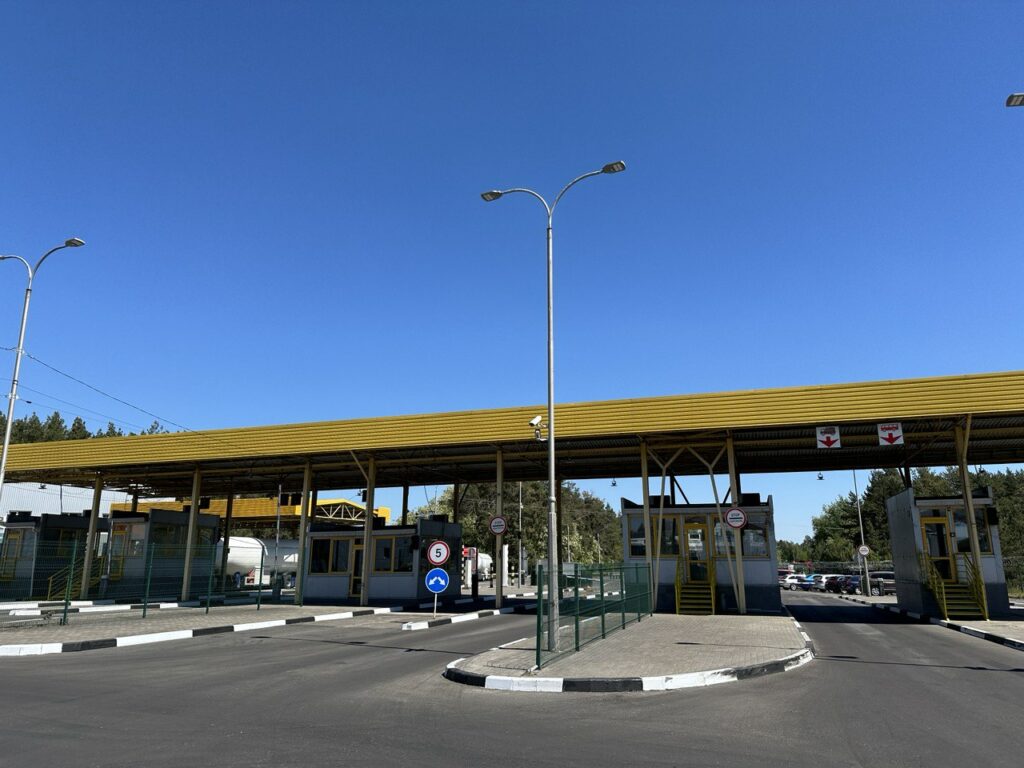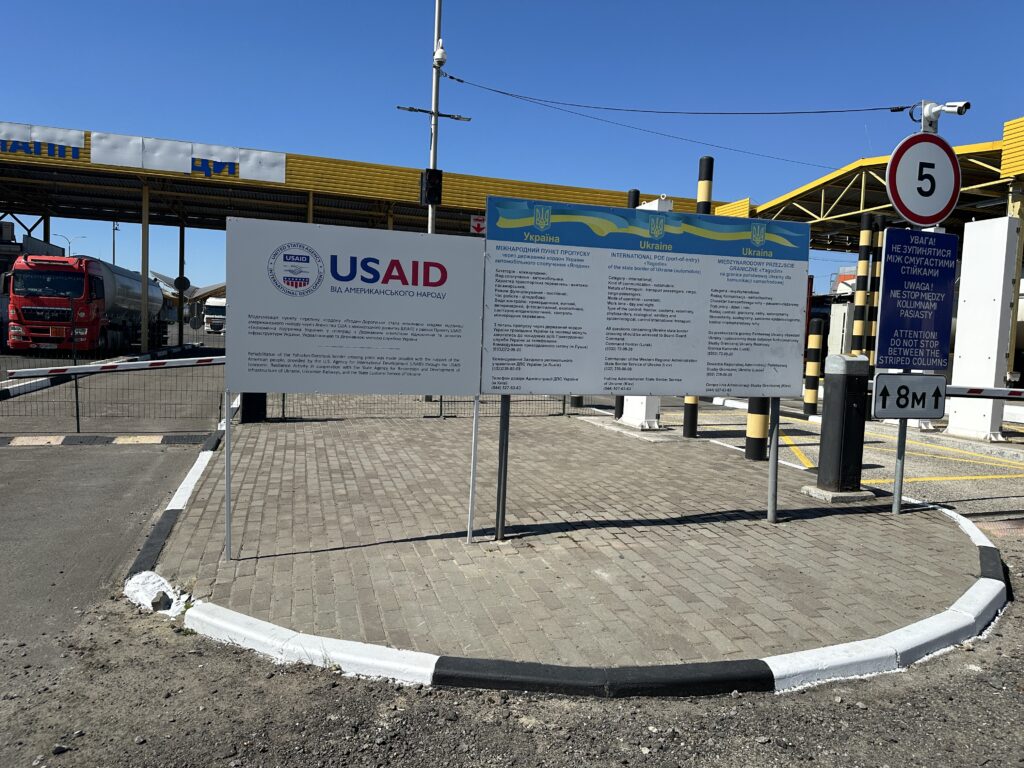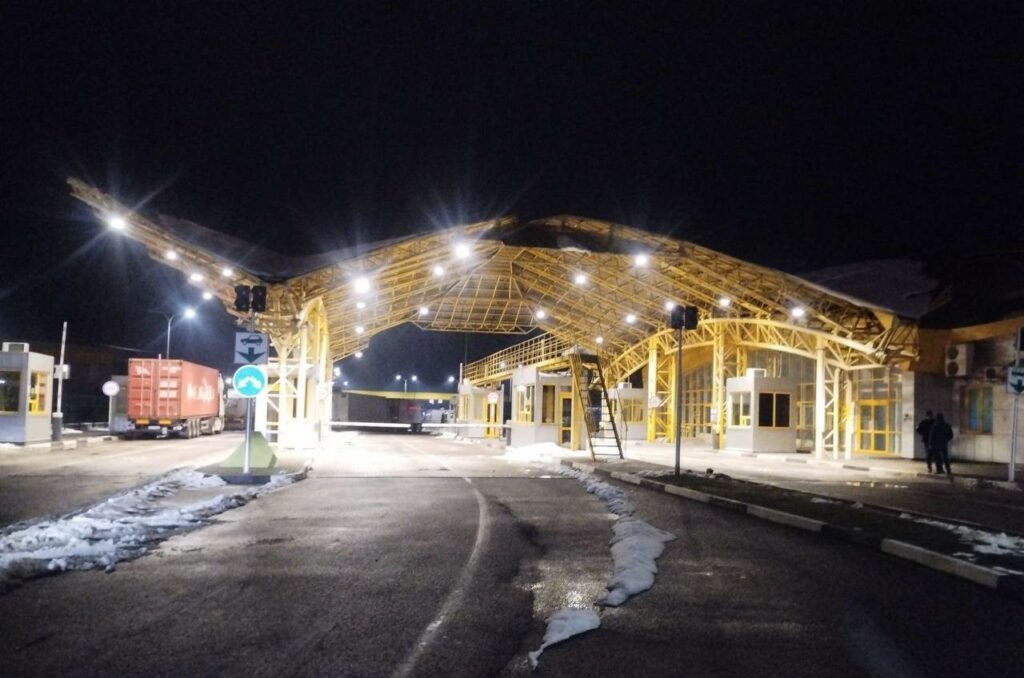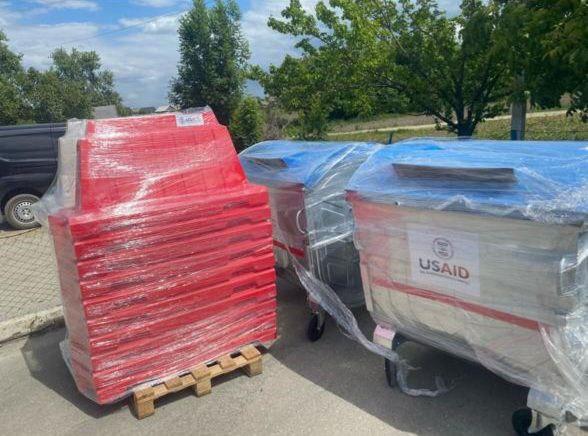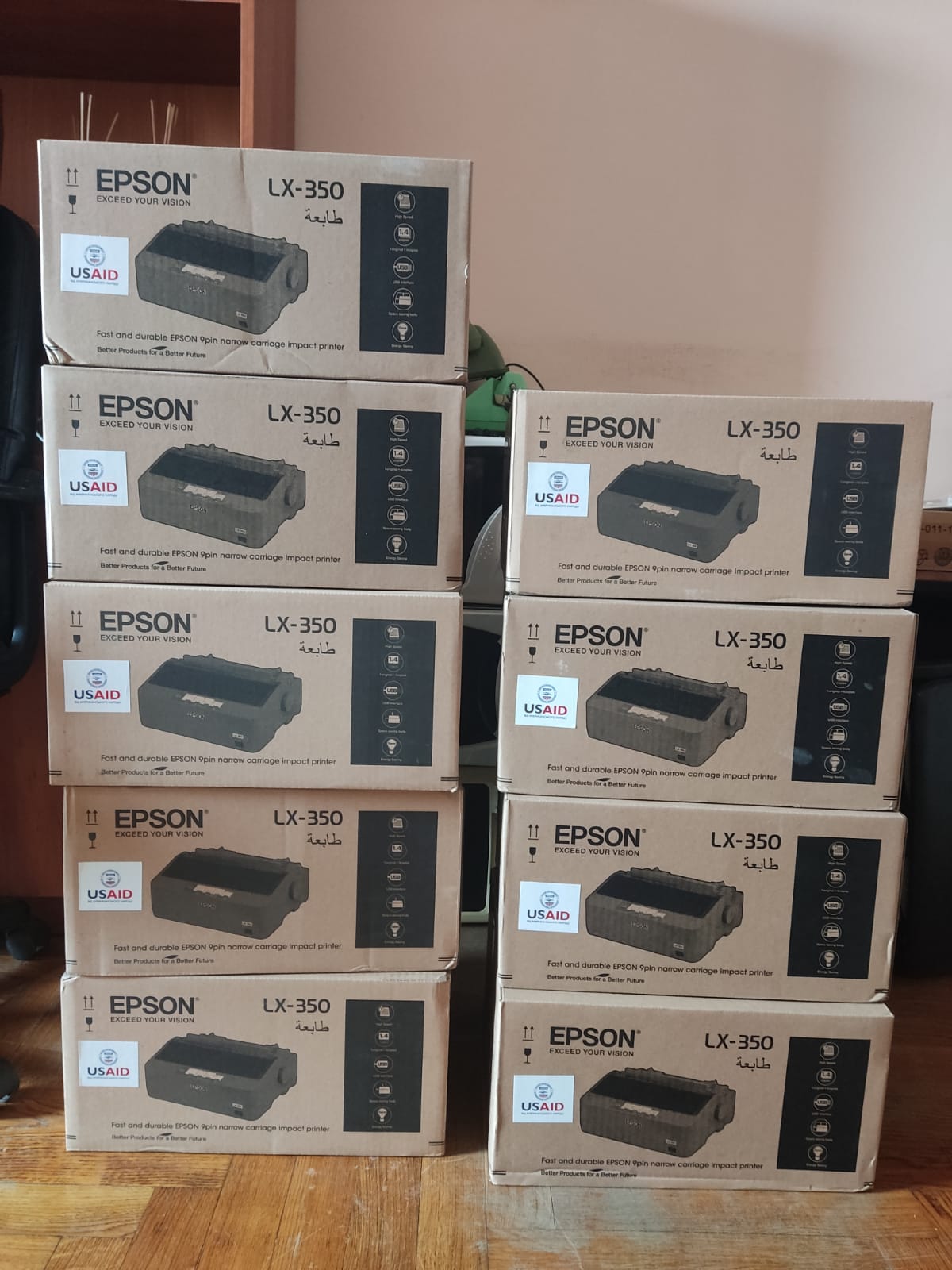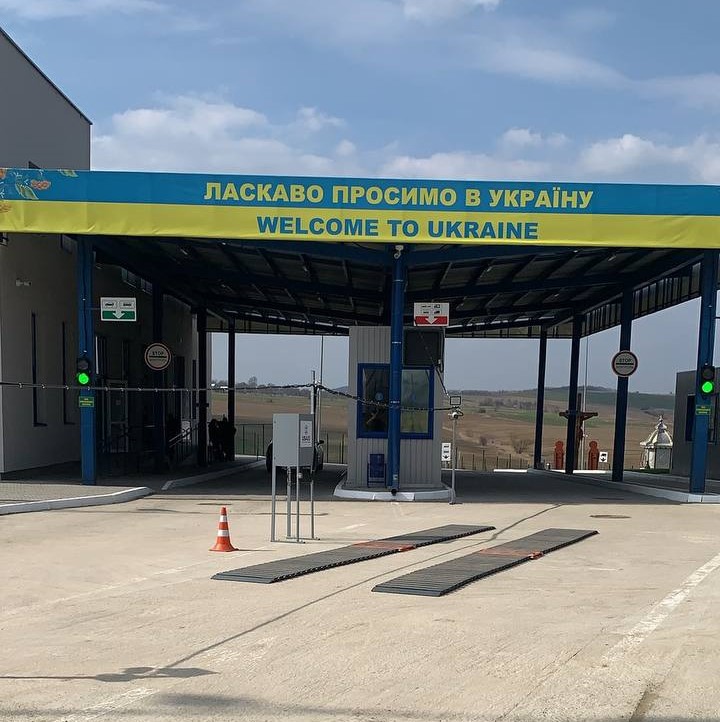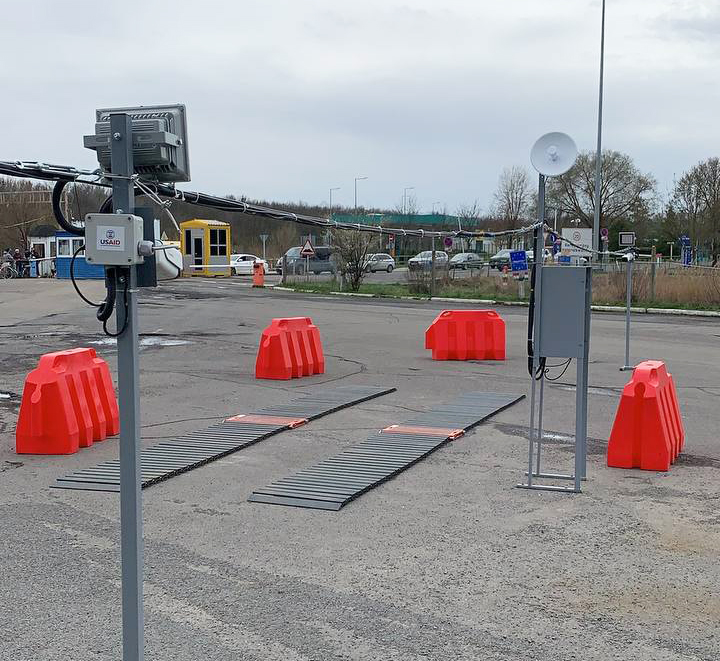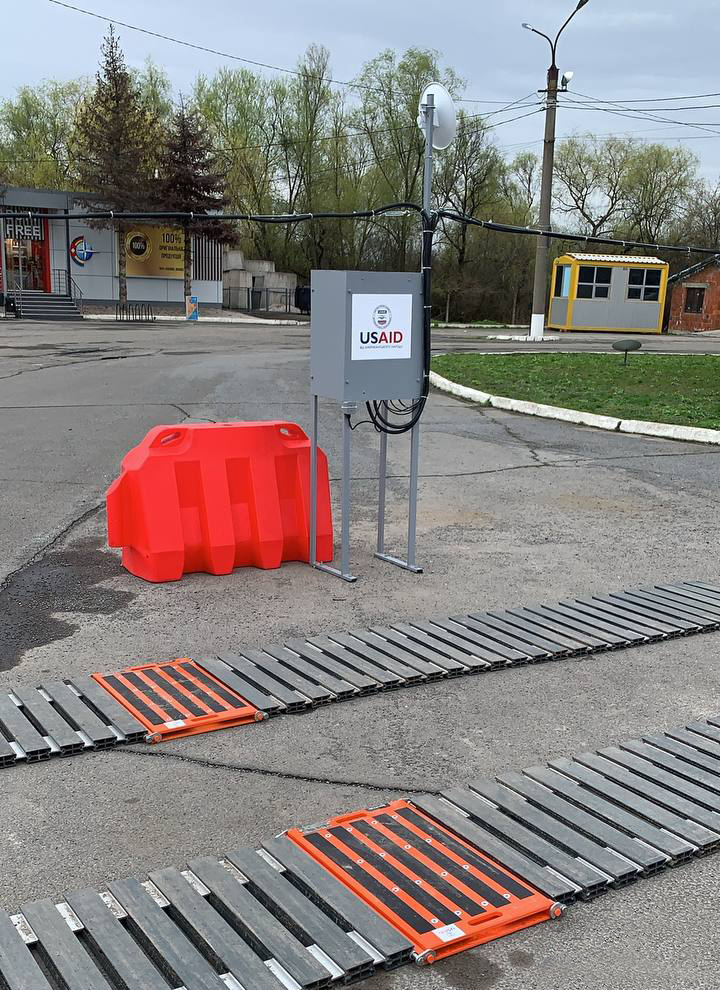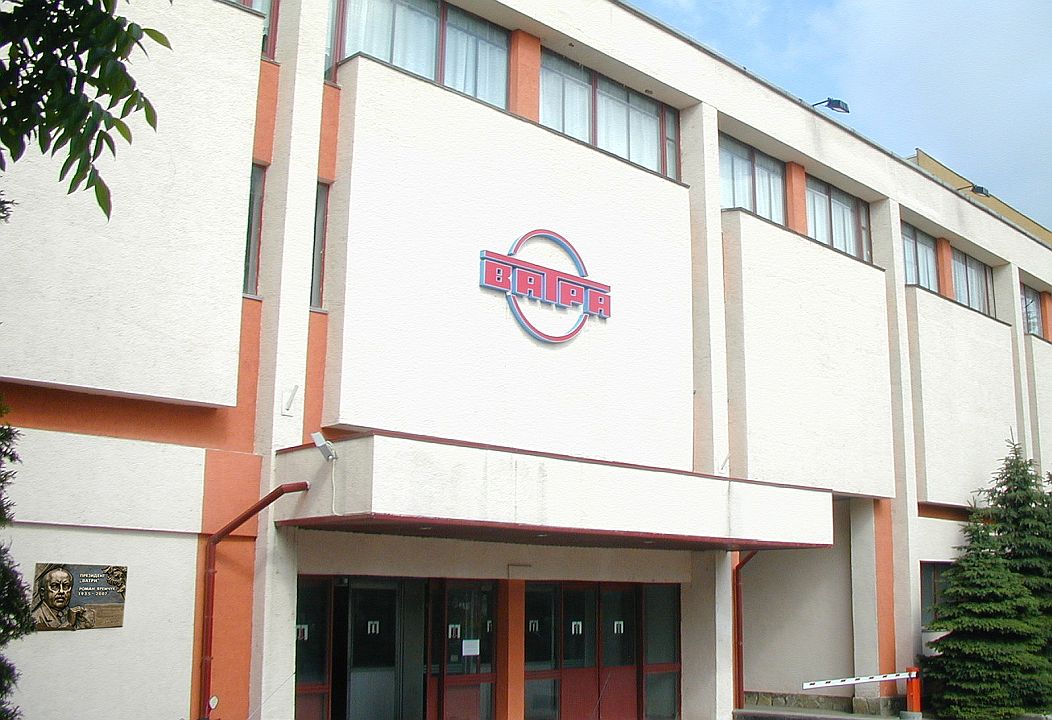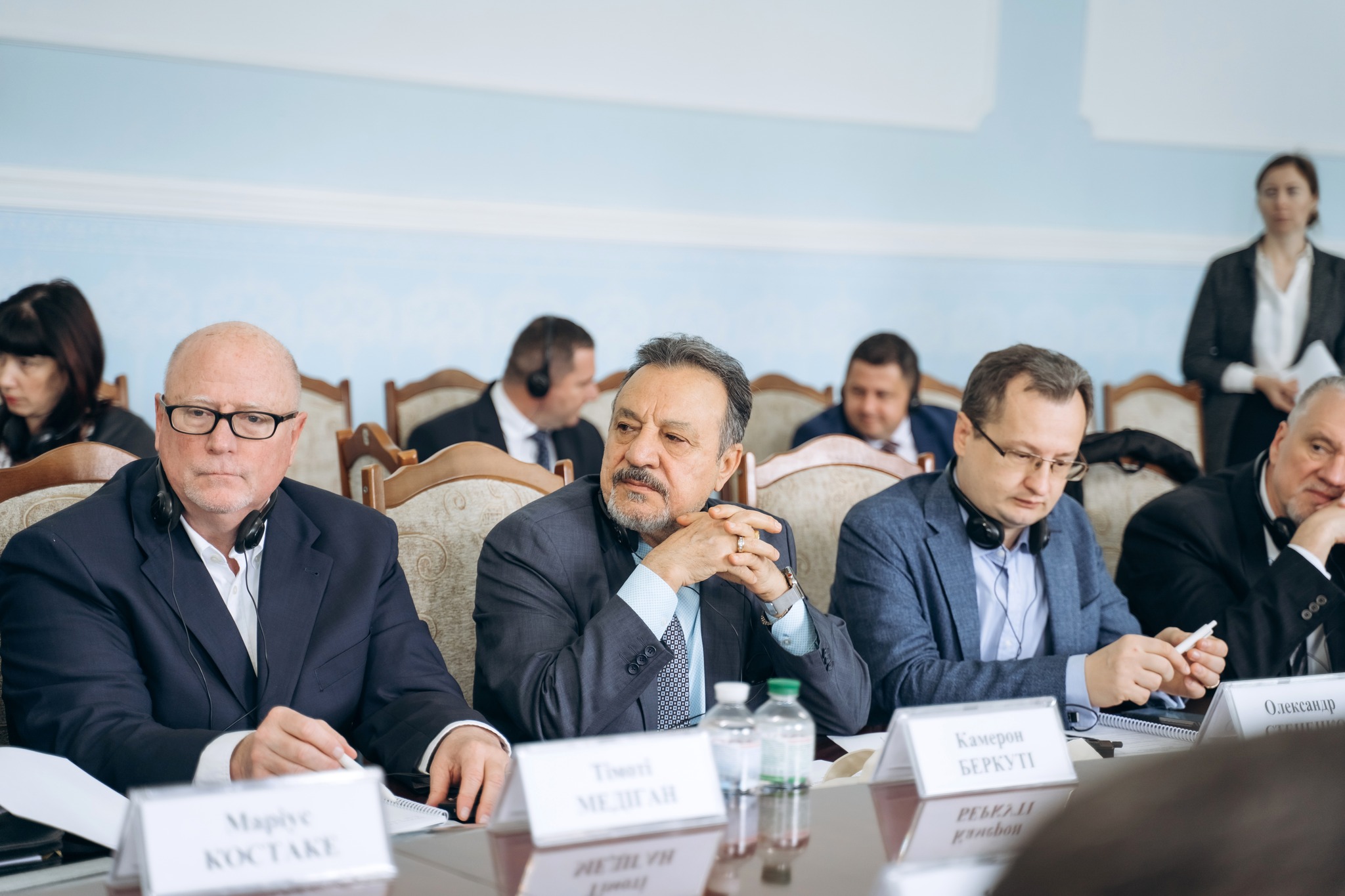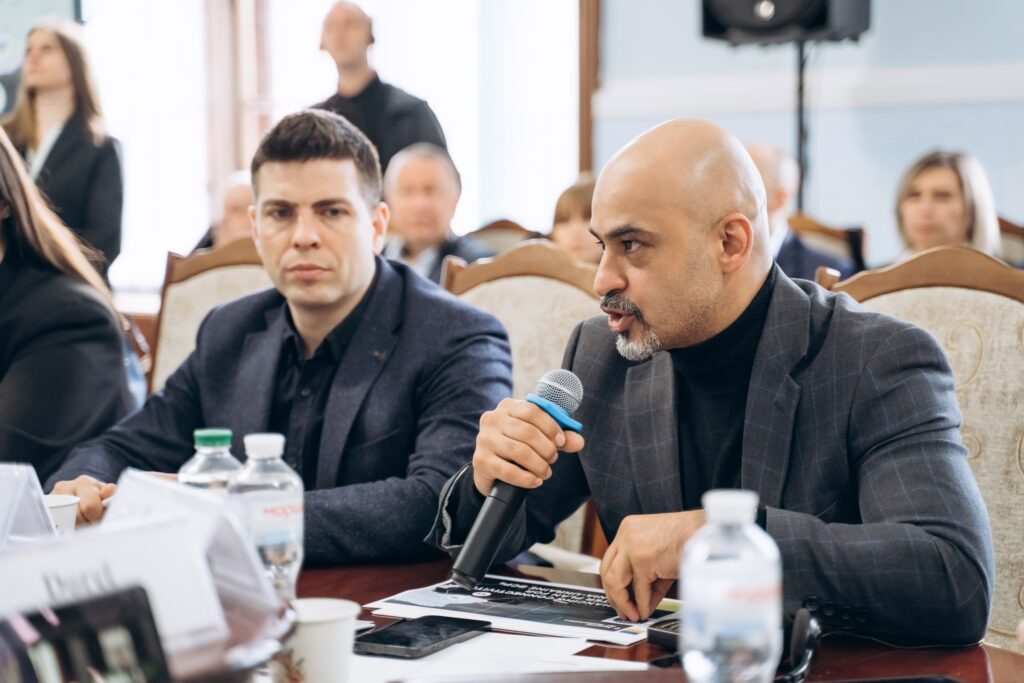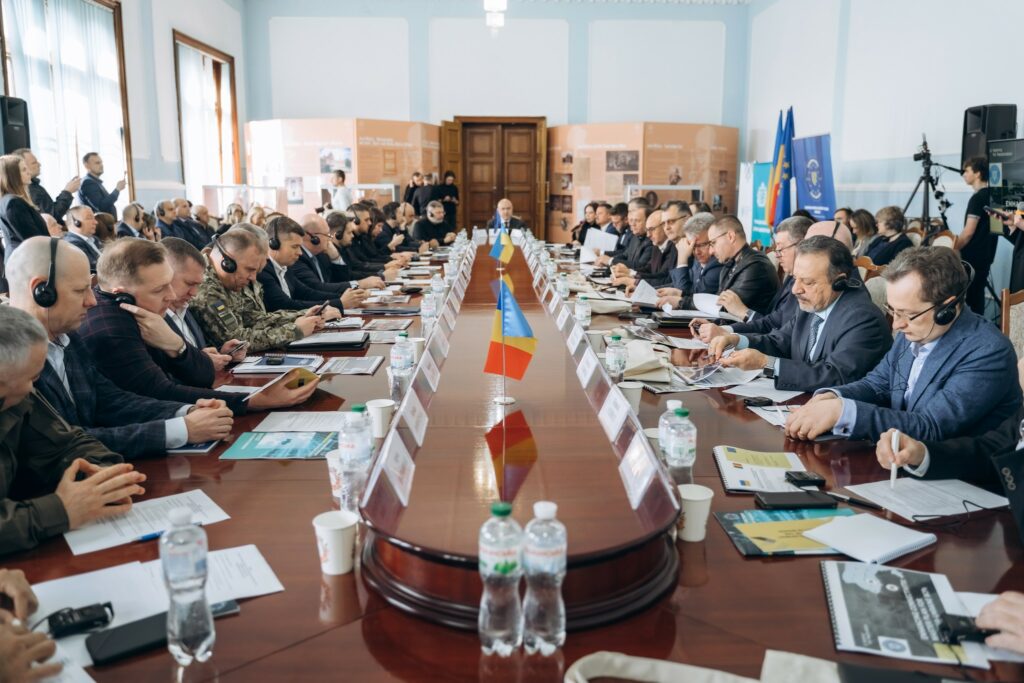The USAID Economic Resilience Activity (USAID ERA) is actively enhancing Ukraine’s border infrastructure by modernizing the lighting systems at key Ukrainian border crossing points (BCPs). This initiative targets installing a total of 875 street LED lights at 17 BCPs on the border with Poland, Hungary, and Moldova. The first 310 LED lights have already been installed, and the lighting upgrade will continue through early May 2024.
Previously, in December 2023, USAID ERA upgraded lighting systems at two BCPs bordering Poland and Slovakia, by installing 479 LED lights. Most of the LED lights are manufactured by Ukrainian producers, one of which is the Ukrainian manufacturer OSP Vatra Corporation, LLC.
VATRA was founded in 1957 in Ternopil as the state-owned enterprise Elektroarmatura, which was engaged in the design, construction, and manufacturing of lighting equipment. Since 1965, the company has focused on the production of lighting equipment, starting with the development of lighting fixtures specifically for the chemical and mining industries. By 1978, the range was expanded to include high-power floodlights. Coming into the new century, the company already had a wide range of modern luminaires and floodlights designed to illuminate hazardous areas, industrial facilities, city streets, and roads, as well as administrative and public buildings. In 2006, the company expanded its portfolio by launching the production of LED lighting structures. Four years later, in 2010, the company launched the production of printed circuit boards for LED matrices. Since 2018, the company has been focusing on producing lighting equipment for airfields and runways as a strategic area.
The main VATRA clients are agricultural and livestock associations ranging from cultivation to processing and logistics of food and related products, transport infrastructure (railways, sea, river and airport ports, transit corridors), road construction and municipal road and street lighting divisions, defense industry, sports and entertainment and recreation, industrial, mining and mining groups.
An interesting fact is that the Ukrainian manufacturer VATRA produced about 10,000 floodlights for the sports facilities of the XXII Olympic Games held in 1980. It is thanks to VATRA, that Kyiv residents and visitors of the capital can admire gilded chandeliers with crystal elements of original design in the Palace of Culture “Ukraine” and the National Opera of Ukraine.
VATRA’s portfolio also includes the manufacture and installation of lighting for Bunge (USA) – Bunge Ukraine (a grain terminal and oil extraction plant), ArcelorMittal – Kryvyi Rih (chemical products manufacturer), Zaporizhstal (oxygen compressor shop), and also for the M.V. Cargo logistics transshipment complex who works in cooperation with Cargil Corporation in Odesa region.
During November-December 2023, through the USAID ERA’s lighting upgrade, VATRA products – LED luminaires DSP65V (196 items) and DSP67V (82 items) – were installed at one of the largest automobile checkpoints in the Volyn region. These high-quality products, providing efficient illumination of the checkpoint, has received many positive reviews from the State Customs and Border Guard officials, as well as travelers and other users of the BCP.
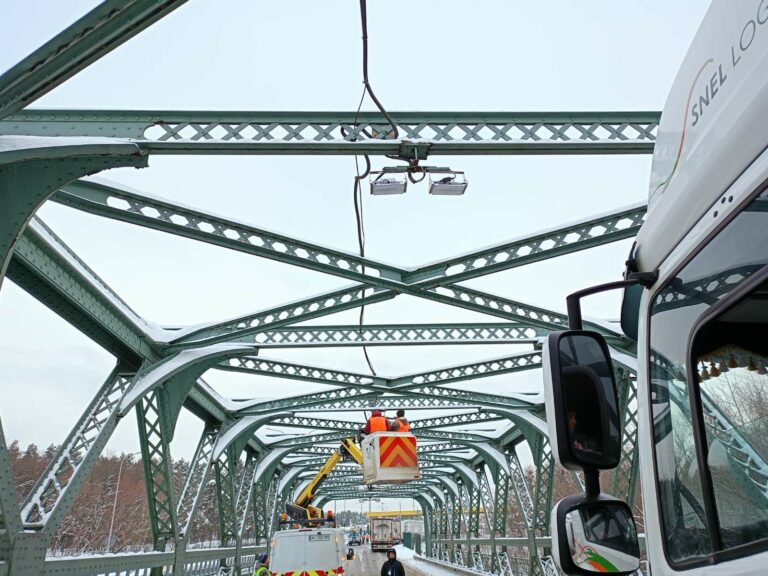
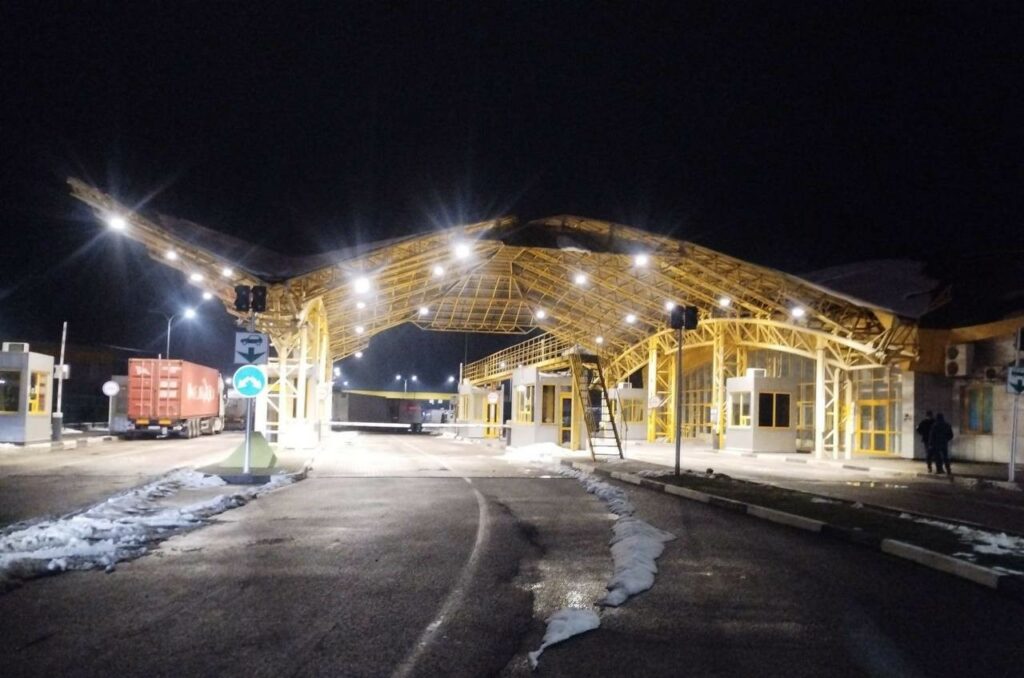
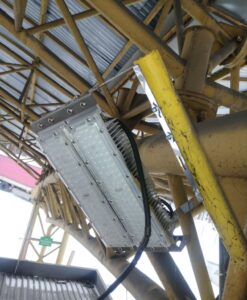
Modern, high-quality and energy-efficient lighting at BCPs is one of the most important areas of modernization of this key infrastructure. Proper lighting affects the overall perception of the gateway to Ukraine, and supports easy and secure customs clearance of cargo and passenger traffic. By installing energy-efficient lighting, energy costs and the overall cost of maintaining lighting systems can be greatly reduced.
“The USAID ERA support opens up a new horizon of opportunities for VATRA to manufacture and supply lighting products worthy of international recognition, with an additional positive social and public impact due to the important work of our collective labor.
At present, the domestic sales market accounts for 97% of our total production. The largest trading partner in foreign markets is the official distributor in Poland.
In 2023, VATRA secured a trade volume at the level secured before the full-scale invasion by Russia. Our team and production capacities are adapted to working in difficult logistical and energy conditions.” – said Oleh Kumchyk, VATRA’s Commercial Director.
VATRA’s company and product profiles perfectly meet the needs of USAID ERA, and the objectives of boosting Ukraine’s economy through export, coupled with the active participation of local industry. VATRA has its own scientific and technical capabilities, which are used to develop, prepare production, and master new equipment at a high technical level. It consists of a design and technology center with a design department, design and technology bureaus, a special tooling design department, a special design bureau for tooling and tooling design, a research and testing laboratory, an experimental laboratory, a quality and competitiveness department with a comprehensive research laboratory, a metrology bureau, and a standardization bureau.
The production facilities of VATRA are focused on a virtually closed production cycle with minimal dependence on third-party supplies and include foundry, plastic parts production, machining, manufacturing, stamping and welding, tooling production, foundry tooling production, electroplating and painting production, and a transport facility that handles internal and external transportation, overhead and floor electric transport, and automobile transportation from the enterprise’s premises.
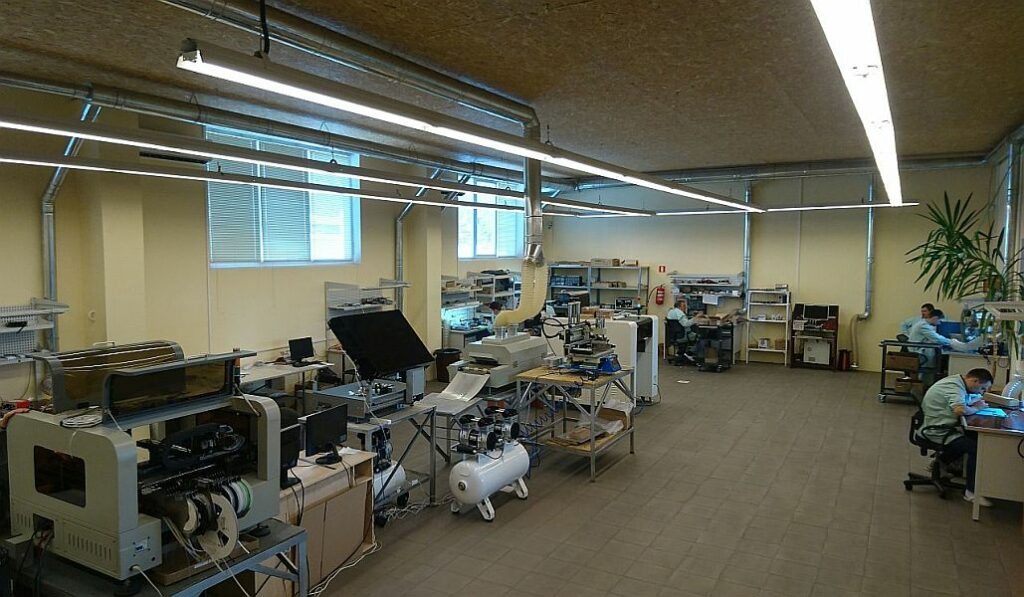
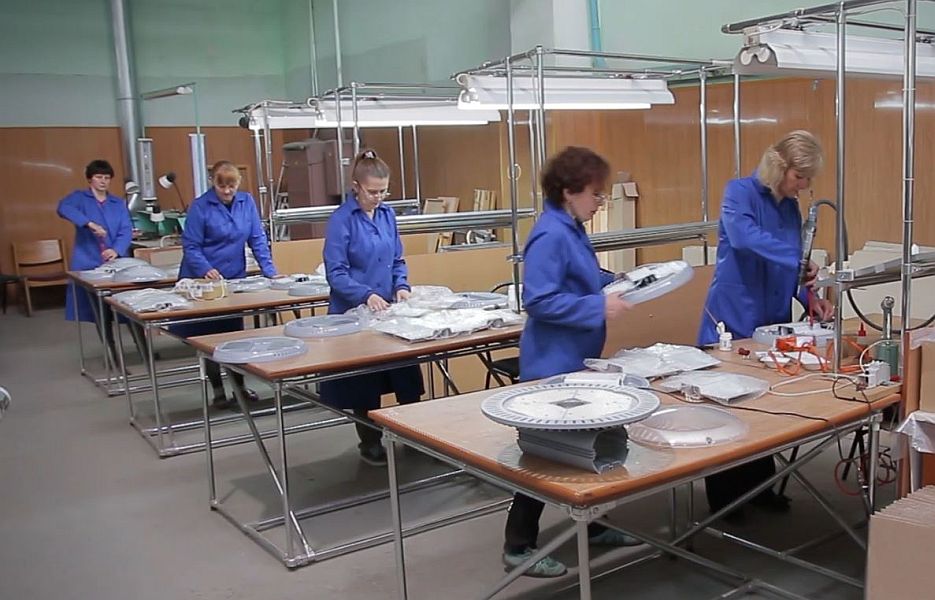
The surface-mounted devices (SMD) production assembly department specializes in the manufacture of special printed LED boards for the entire range of products. The assembly department assembles products on assembly lines and individual workstations using special electrical and pneumatic equipment.
The innovation of VATRA’s production is achieved by using LEDs as a light source with a special luminaire design that provides appropriate heat dissipation, which stabilizes the longevity of such a light source without significant degradation of the light flux throughout its service life.
The quality of VATRA’s products is ensured and controlled in accordance with the requirements of certification standards ISO 9001, ISO 14001, ISO 28000, ISO 37001, ISO 50001. The products are manufactured in accordance with the state regulations and regulations of the State Standard of Ukraine (DSTU) and VATRA’s own technical specifications.
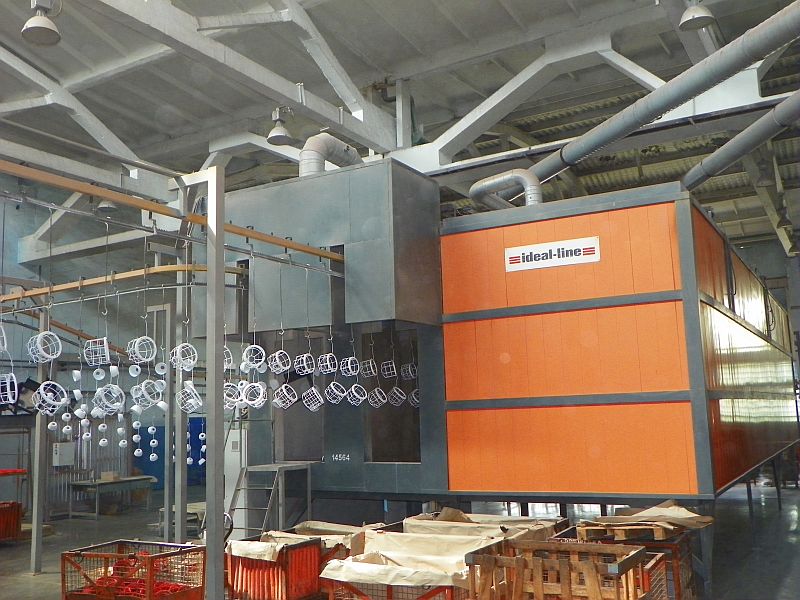
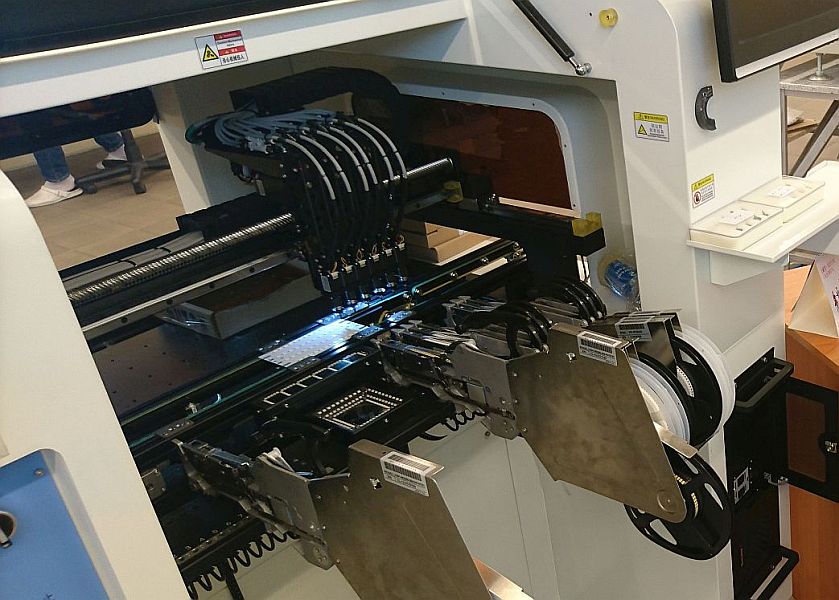
VATRA is the only major manufacturer of explosion-proof lighting in Ukraine possessing full compliance with the necessary certification and permitting requirements. Several of VATRA’s luminaires for lighting in potentially explosive environments have been tested and certified according to the equipment for potentially explosive atmospheres (ATEX) directive, which gives VATRA the opportunity to sell these products in the European Union.
Improving lighting systems at BCPs is important for the safety of travelers and employees, especially at night. High-quality lighting will allow the State Customs officers to process information faster, reducing waiting times and increasing throughput at the border.
Earlier this year, USAID ERA replaced 33 old modular buildings at four priority BCPs, some of which will be used as offices for employees of the State Customs and Border Guard Services of Ukraine. Under these general upgrade activities, road signs have also been replaced, and water barricades, waste sorting bins, and commodity scales have been installed at some of the BCPs to speed up customs procedures. Further, USAID ERA contractors have begun pavement repair and miscellaneous improvement work at some of these key BCPs. The work involves repairing damaged pavements, stormwater slotted drains, and canopy cover over the checkpoints, and painting the barriers and metal fence, placement of traffic lane lines and markings, and replacing security fences.
Background: USAID’s Economic Resilience Activity (ERA) is one of USAID’s core partners implementing the $350 million Agriculture Resilience Initiative – Ukraine (AGRI-Ukraine) that was established in 2022 to bolster Ukrainian agricultural exports and alleviate the global food security crisis exacerbated by the war. Under AGRI-Ukraine, ERA partners with public and private companies to complement and leverage urgently needed grain transportation and transshipment investments.
ERA also directly supports the Government of Ukraine, including the Ministry for Restoration (MoR), the State Agency for Restoration and Development of Infrastructure of Ukraine (SARDI), the State Customs Service, and Ukrainian Railways, to upgrade 42 of Ukraine’s border crossing points (BCPs). Modern and more efficient border infrastructure and customs procedures will reduce export costs and increase export capacity, enabling Ukraine to scale trade and advance its path to EU integration.






